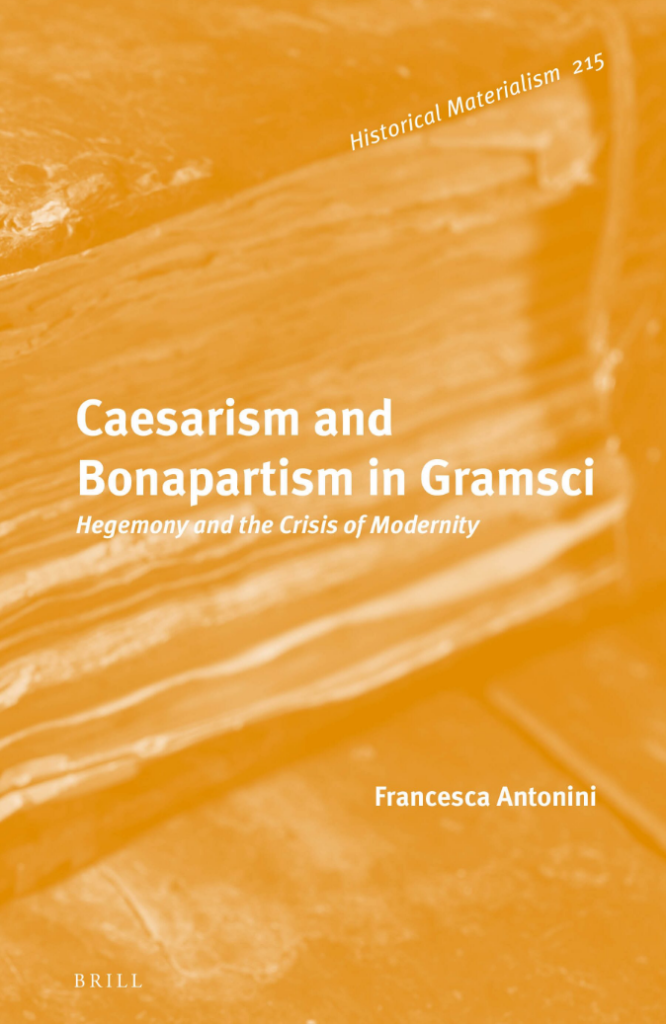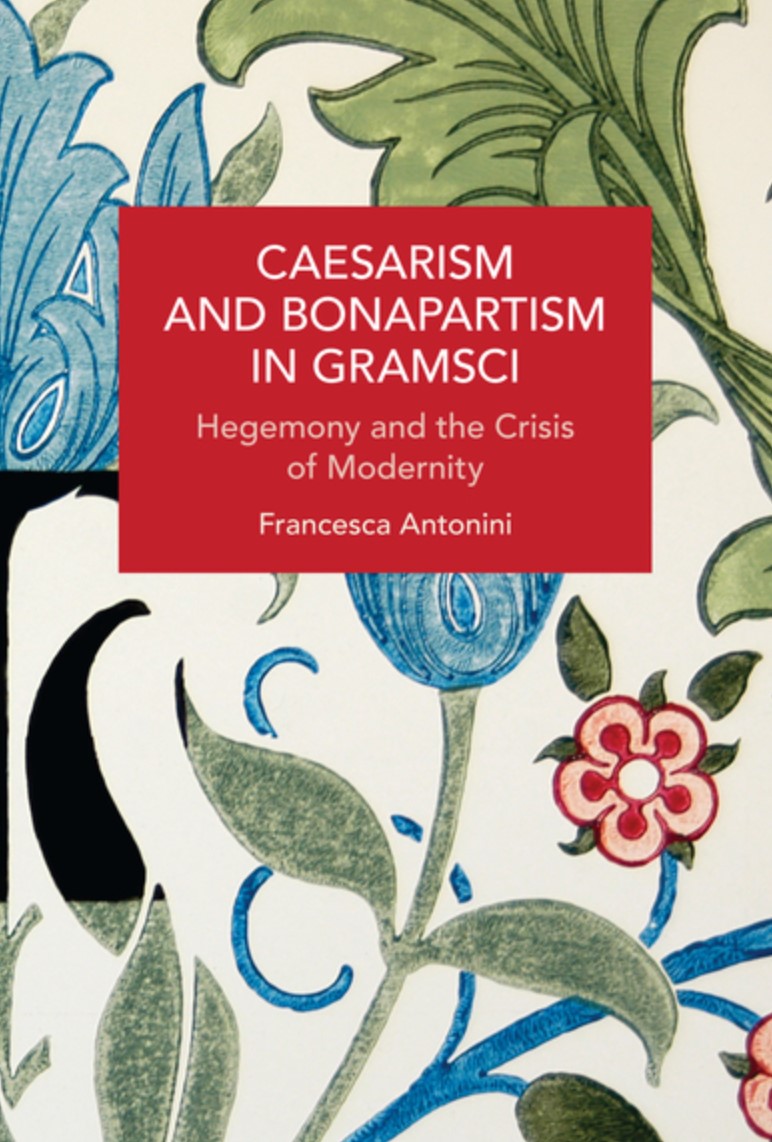Francesca Antonini
Winner of the prestigious ‘Giuseppe Sormani International Prize’ for works on Antonio Gramsci (Fifth edition, 2020).In Caesarism and Bonapartism in Gramsci, Francesca Antonini offers a fresh insight into Antonio Gramsci’s thought. Building on the achievements of recent Gramscian scholarship, she investigates his usage of the concepts of Bonapartism and Caesarism, both in his pre-prison writings and in the Prison Notebooks. The Caesarist-Bonapartist paradigm relates crucially to Gramsci’s reflections on hegemony and on its transformations across the nineteenth and twentieth centuries. While this model is essential to Gramsci’s understanding of the interwar period and of the Fascist regime in Italy, it also sheds a meaningful light on other past and present scenarios, from the French Second Empire to the USSR of his time. Finally, yet importantly, Antonini’s analysis illuminates Gramsci’s approach towards the Marxian legacy.
Biographical Note
Readership
All interested in the thought of Antonio Gramsci and in the history of the concepts of Caesarism and Bonapartism, and anyone concerned with 19th-20th century Italian Marxism.
Table of Contents
Preface: Gramsci on Caesarism and Bonapartism
Acknowledgements
Abbreviations
Note on the Text
1 The Concepts of Bonapartism and Caesarism from Marx to Gramsci
1 The Genesis of the Category between Historiography and Political Polemics
2 Marx: From The Eighteenth Brumaire to The Civil War in France
3 Across the Nineteenth and the Twentieth Centuries
2 The Pre-prison Writings
1 Two (Almost) Neglected Categories
2 Marx, Gramsci and the Marxian Sources
3 Socialism and Romanticism
1 Against Maximalism and Reformism: Reckoning with Italian Socialism
2 The ‘Romance’ of the Italian Bourgeoisie
4 Crisis and Balance: Between Revolution and Restoration
1 Gramsci’s Political Theory: Crisis and Balance
2 The Catastrophic Crisis of Capitalism
3 The Balance Metaphor: The Origins of the ‘Relations of Force’
5 Bonapartism, Caesarism and Fascism in Gramsci’s Journalistic Works
1 The Crisis of the Liberal Order and the Rise of Fascism
2 A (Critical) Theory of State and Politics
3 Marx’s Eighteenth Brumaire: Analogies and Analyses
4 On the Gramsci-Marx Relationship in the Pre-prison Writings
6 Towards the Prison Notebooks
1 Continuity and Novelty
2 The Editions of Marx’s Texts
3 Overview of the Occurrences
7 The Meanings of ‘Bonapartism’
1 Bonapartism in the Prison Notebooks
2 Militarism and War of Movement
3 Gramsci and the So-called ‘Dictatorships of Depretis, Crispi and Giolitti’
4 Bonapartism and Bureaucracy
8 Between Bonapartism and Caesarism
1 Anachronistic Revival or Useful Analytical Tool?
2 Q 13, §§ 23 and 27 and Their First Drafts
3 Further Occurrences
9 Gramsci and the Theory of Caesarism
1 Michels and ‘Charismatic Leadership’
2 ‘The Old Is Dying and the New Cannot Be Born’
3 The Dreyfus Affair and the ‘Tendential’ Character of the Catastrophic Crisis
4 The ‘Taxonomy’ of Caesarism
10 Caesarism and Historical Analysis
1 Gramscian ‘Concerns’
2 The Historico-political Framework of the Prison Notebooks
3 Caesarism and Passive Revolution
11 Hegemony and Modernity
1 Twentieth-Century Caesarism
2 Crisis of Authority and Caesarist-Bonapartist Solutions
3 A New Form of Hegemony
12 Contemporary Caesarism(s)
1 Totalitarian Trends
2 Between Moscow and Rome
3 ‘Alternative Modernities’
4 ‘Caesarism without a Caesar’ and the Issue of the Modern Prince
13 Caesarism, Bonapartism and the ‘Return to Marx’ in the Prison Writings
1 Gramsci and the Marxian Legacy
2 Caesarism and Bonapartism in the Prison Notebooks
Bibliography
Name Index
Subject Index


